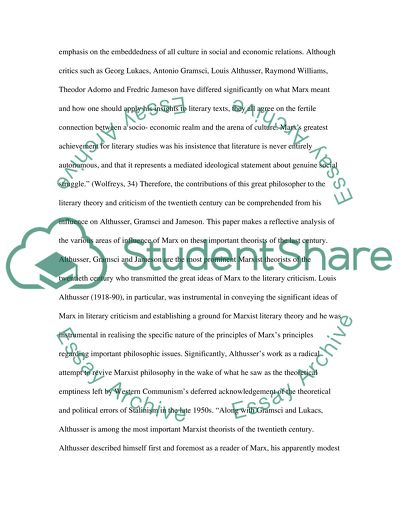Cite this document
(“20th century literary theory Essay Example | Topics and Well Written Essays - 1000 words”, n.d.)
Retrieved from https://studentshare.org/literature/1504655-20th-century-literary-theory
Retrieved from https://studentshare.org/literature/1504655-20th-century-literary-theory
(20th Century Literary Theory Essay Example | Topics and Well Written Essays - 1000 Words)
https://studentshare.org/literature/1504655-20th-century-literary-theory.
https://studentshare.org/literature/1504655-20th-century-literary-theory.
“20th Century Literary Theory Essay Example | Topics and Well Written Essays - 1000 Words”, n.d. https://studentshare.org/literature/1504655-20th-century-literary-theory.


